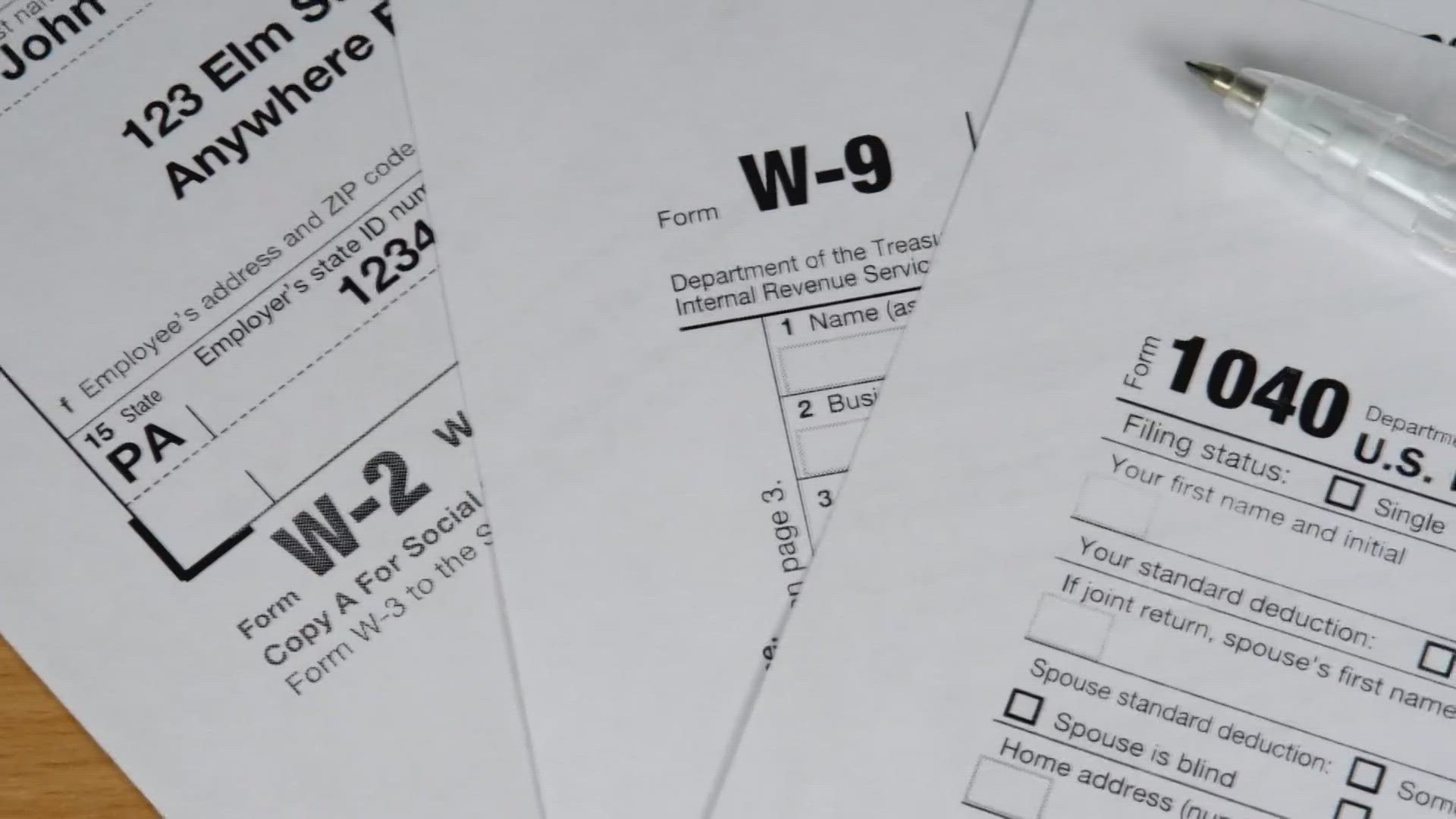WASHINGTON — On this Tax Day, refunds are looking a bit bigger for taxpayers.
According to the latest IRS statistics, the average income tax refund so far this season is $3,011, up $123 from last year. Two out of three taxpayers expect to receive a refund.
The IRS is promoting the customer service improvements the agency rolled out since receiving tens of billions in new funding dollars through Democrats' Inflation Reduction Act. Getting refunds out faster — to some people in just over a week — is part of the promotion.
So far, the IRS has delivered more than $200 billion in refunds through early April, and the latest agency numbers show that 101 million people have filed returns this tax season.
At least one prominent person did not get a refund. President Joe Biden on Monday released the tax returns he filed with his wife, Jill, showing that he still owed the IRS $334 and the state of Delaware $1,480. But Jill Biden qualified for a $433 refund from Virginia, where she teaches. The Biden earned $619,976 and paid a federal income tax rate of 23.7%.
From cutting phone wait times to digitizing more documents and improving the “Where's My Refund” tool to show more account details in plain language, agency leaders are trying to bring attention to what's been done to repair the image of the IRS as an outdated and maligned tax collector.
The promotion also in part is meant to quickly normalize a more efficient and effective IRS before congressional Republicans threaten another round of spending cuts to the agency. So time is of the essence for both taxpayers and the agency.
“This filing season, the IRS has built off past successes and reached new milestones,” Treasury Secretary Janet Yellen said on a Friday call with reporters. “It’s showing that when it has the resources it needs, it will provide taxpayers the service they deserve.”
"It’s clear that we’re seeing historic improvements in taxpayer service levels, and the agency is rebounding from some very tough and lean years during the past decade," said IRS Commissioner Daniel Werfel.
For most people, April 15 is the last day to submit tax returns or to file an extension.
The IRS says call wait times have been cut down to three minutes this tax season, compared with the average 28 minutes in 2022. That has saved taxpayers 1.4 million hours of hold time and the agency has answered 3 million more calls compared with the same time frame. Also, the updated “Where’s My Refund” tool giving more specific information about taxpayers’ refunds in plain language was rolled out to 31 million views online.
Werfel told The Associated Press earlier this year that the agency's agenda is to deliver “better service for all Americans so that we can ease stress, frustration and make the tax filing process easier — and to increase scrutiny on complex filers where there’s risk of tax evasion."
“When we do that,” Werfel said, “not only do we make the tax system work better because it’s easier and more streamlined to meet your tax obligations. But also we collect more money for the U.S. Treasury and lower our deficit. The IRS is a good investment.”
Major new initiatives in recent months have included an aggressive pursuit of high-wealth earners who don’t pay their full tax obligations, such as people who improperly deduct personal flights on corporate jets and those who just don’t file at all.
This also is the first tax season that the IRS has rolled out a program called Direct File, the government’s free electronic tax return filing system available to taxpayers in 12 states who have simple W-2 forms and claim a standard deduction.
If Direct File is successful and scaled up for the general public’s use, the program could drastically change how Americans file their taxes and how much money they spend completing them. That is, if the agency can see the program through its development in spite of threats to its funding.
The Inflation Reduction Act initially included $80 billion for the IRS.
However, House Republicans have successfully clawed back some of the money. They built a $1.4 billion reduction to the IRS into the debt ceiling and budget cuts package passed by Congress last summer. A separate agreement will take an additional $20 billion from the IRS over the next two years to divert to other nondefense programs.
Government watchdogs warn IRS funding cuts will reduce the amount of revenues the U.S. collects.
The non-partisan Congressional Budget Office reported in February that a $5 billion rescission from the IRS would reduce revenues by $5.2 billion over the next 10 years and increase the cumulative deficit by $0.2 billion. A $20 billion rescission would reduce revenues by $44 billion and a $35 billion rescission would reduce revenues by $89 billion and increase the deficit by $54 billion.

